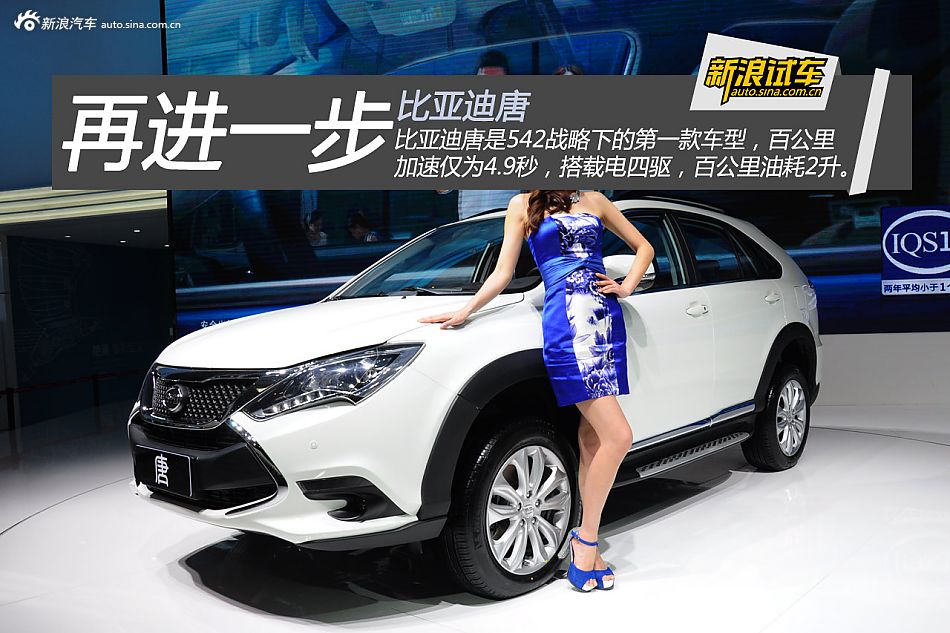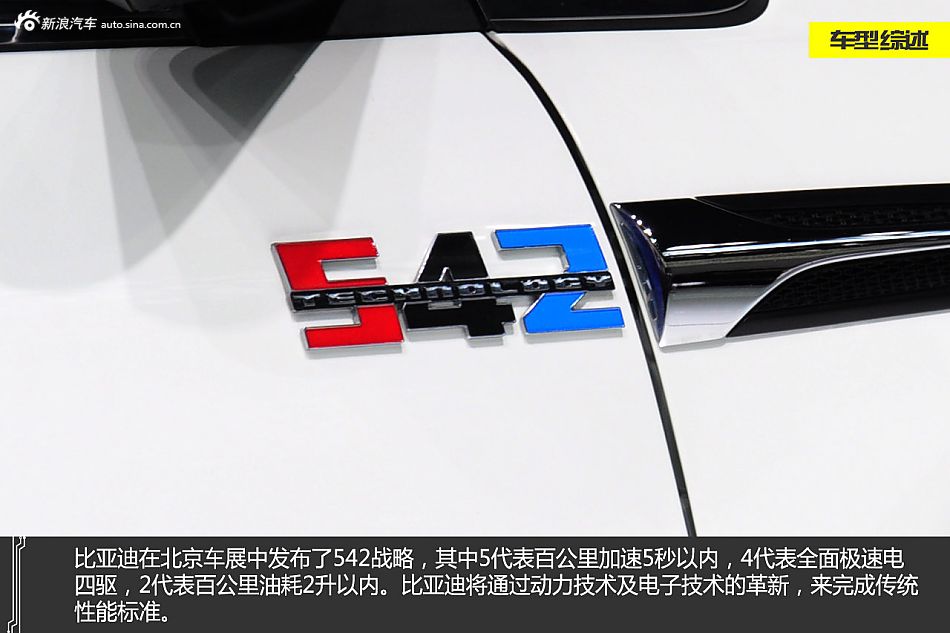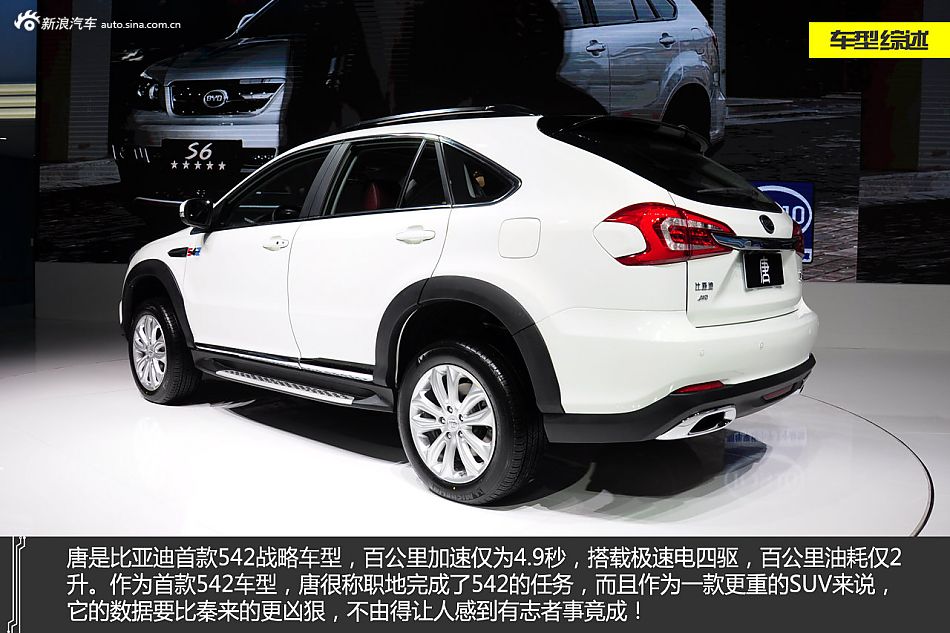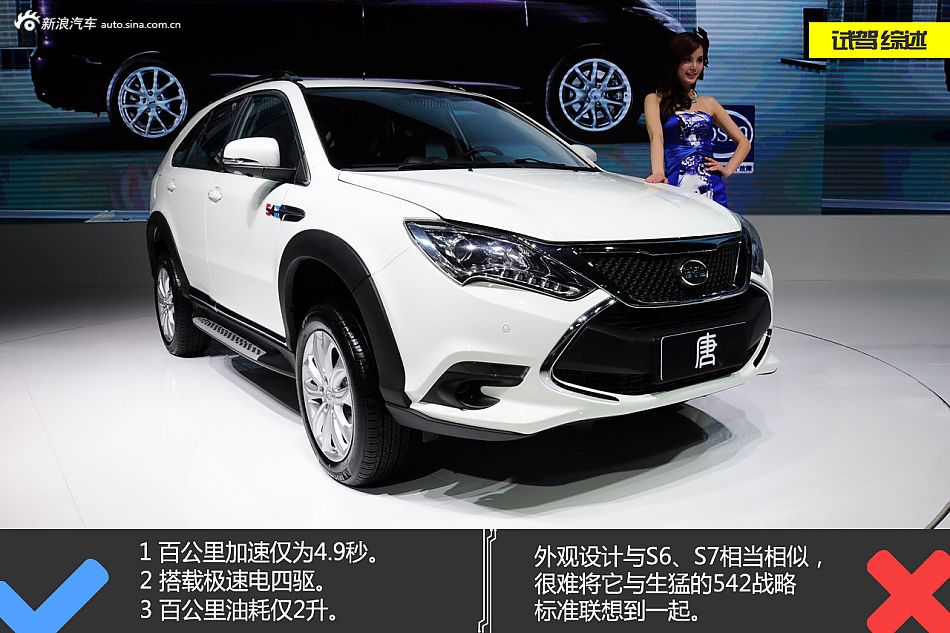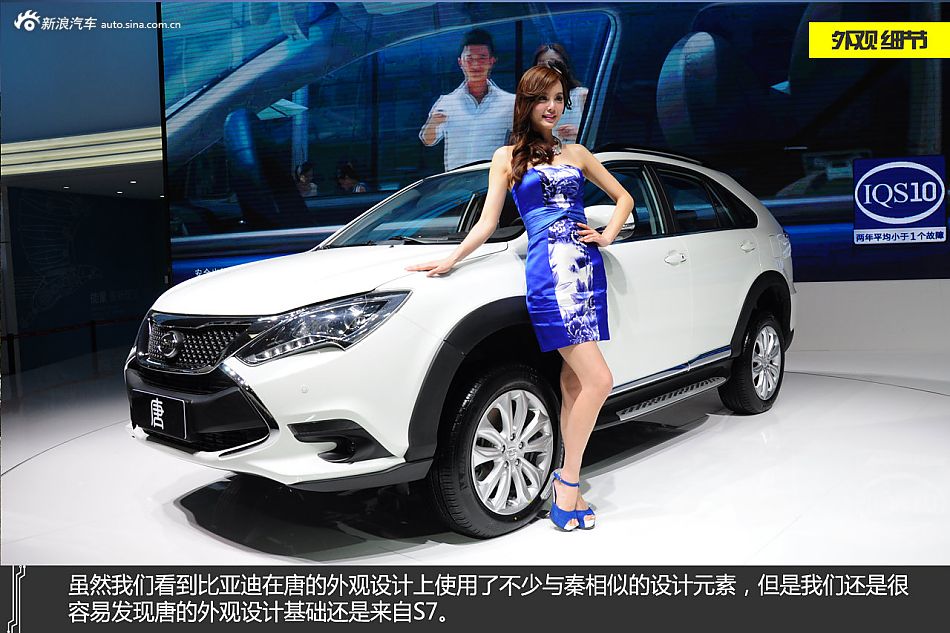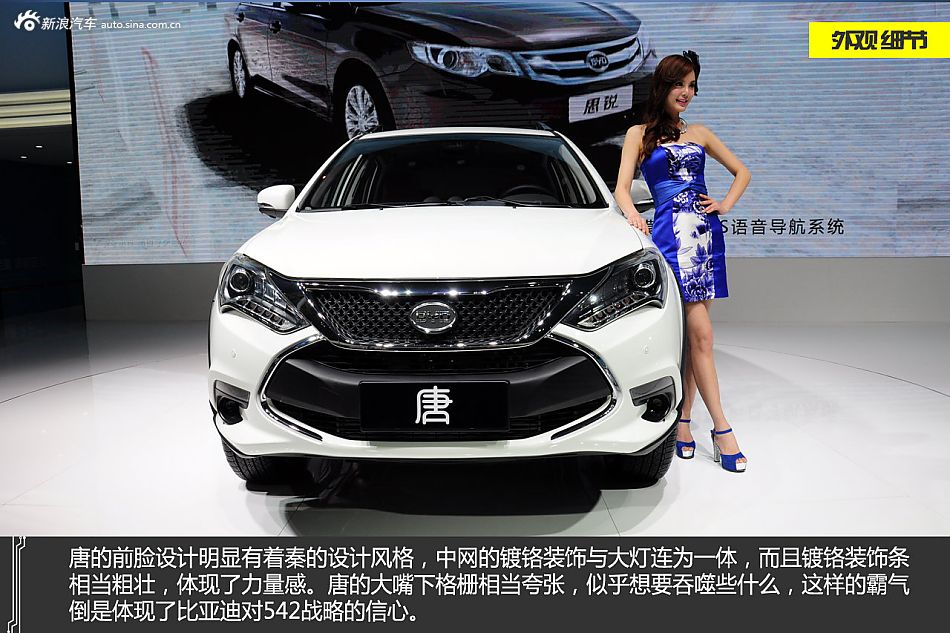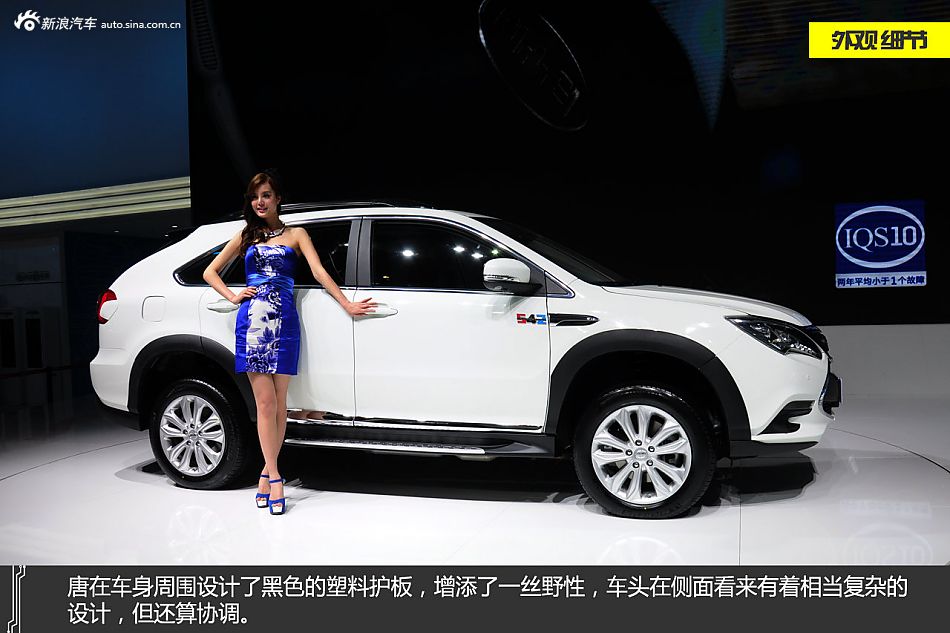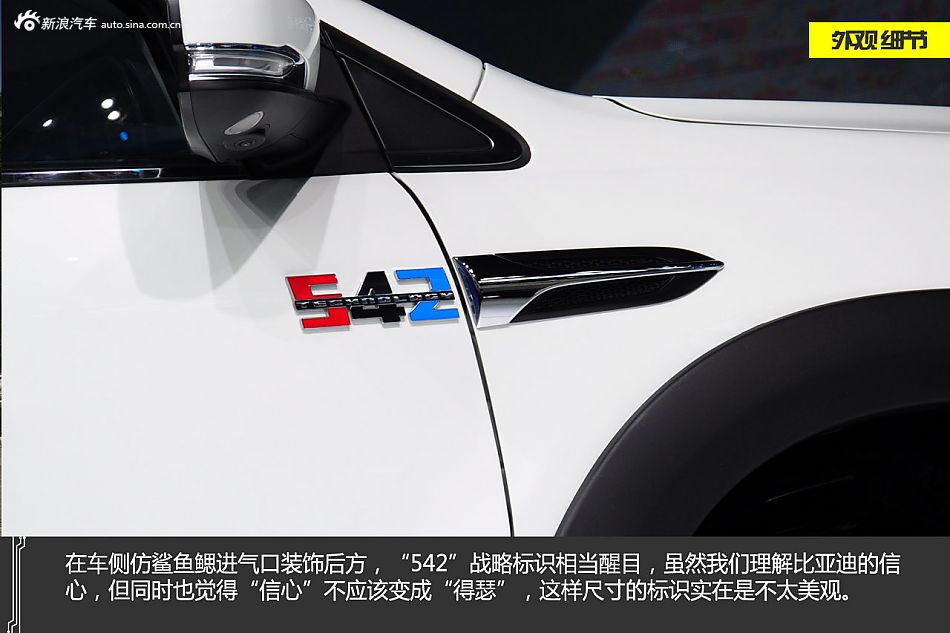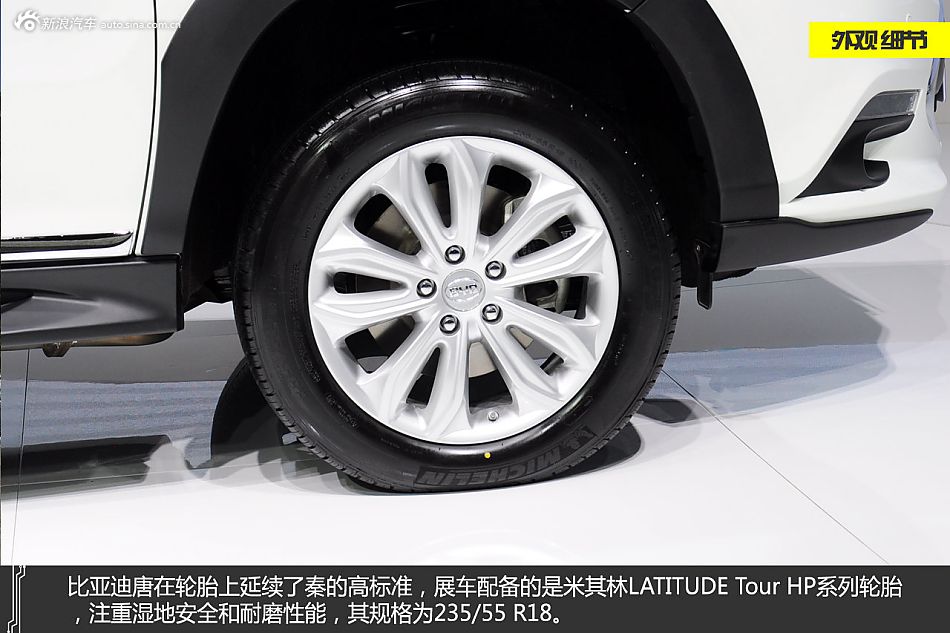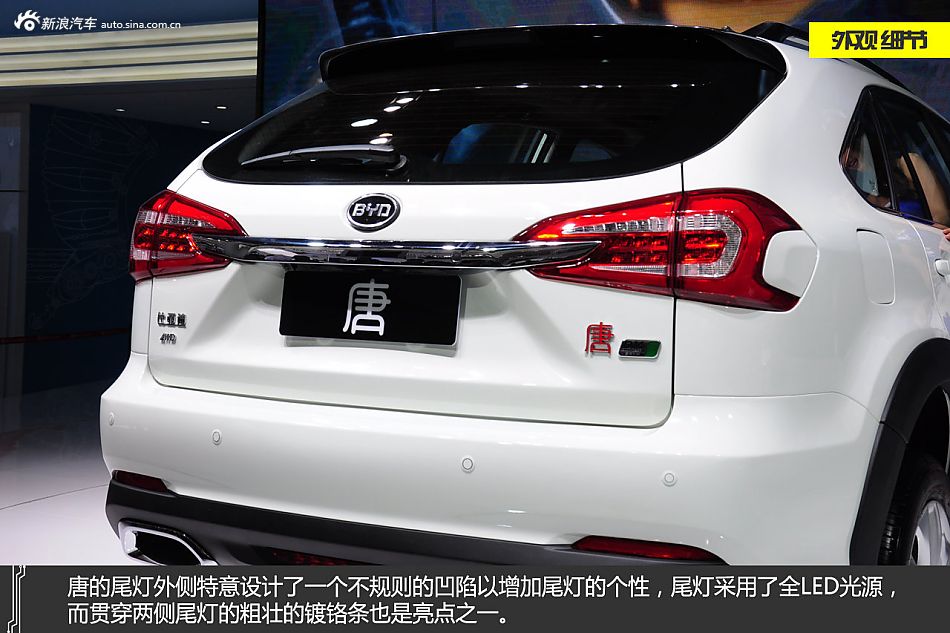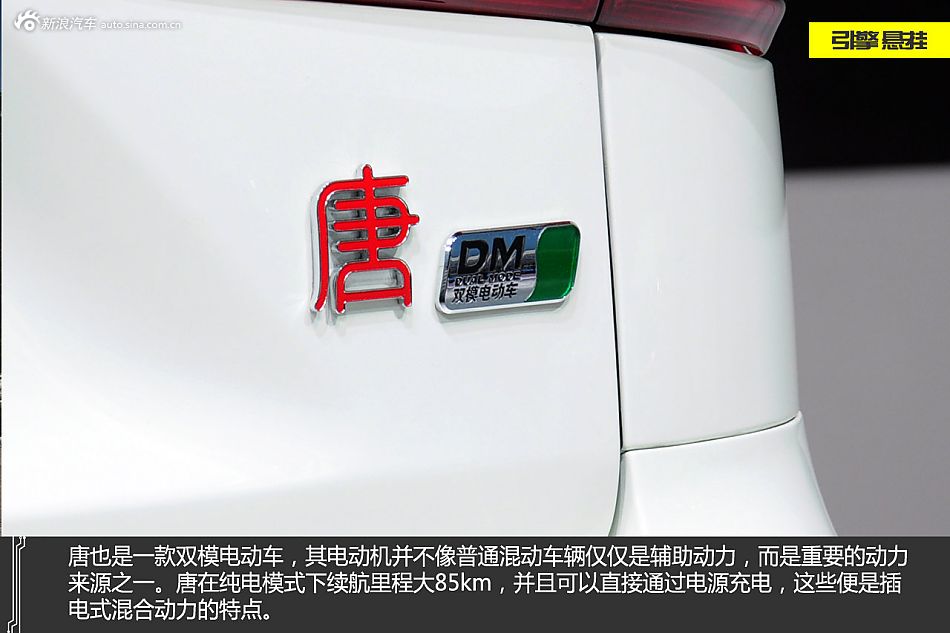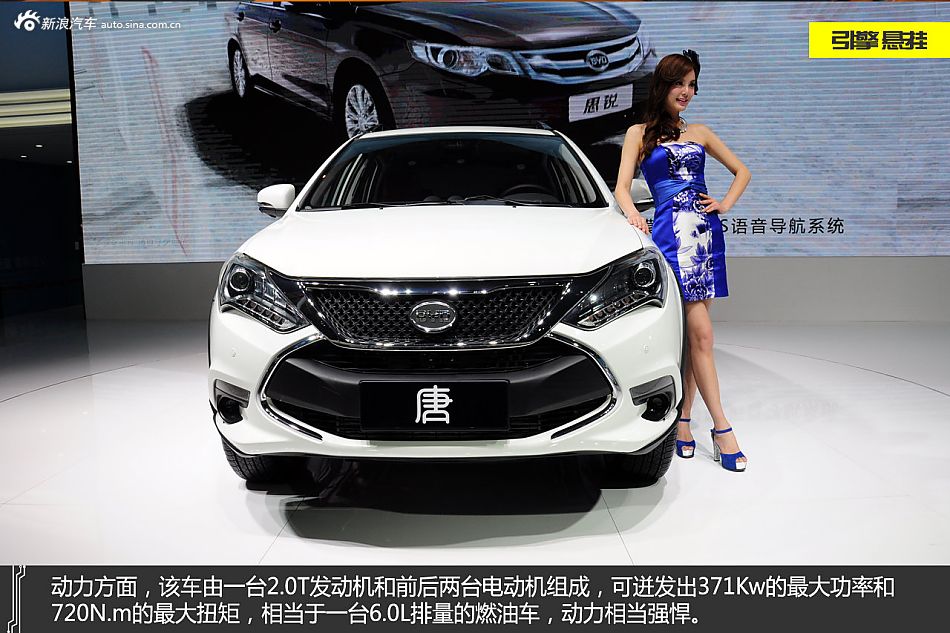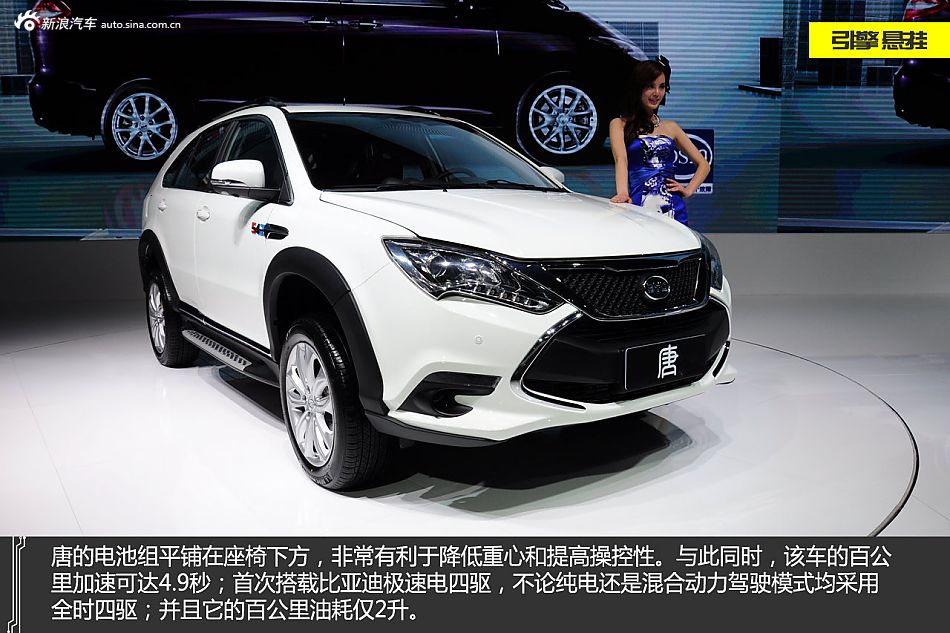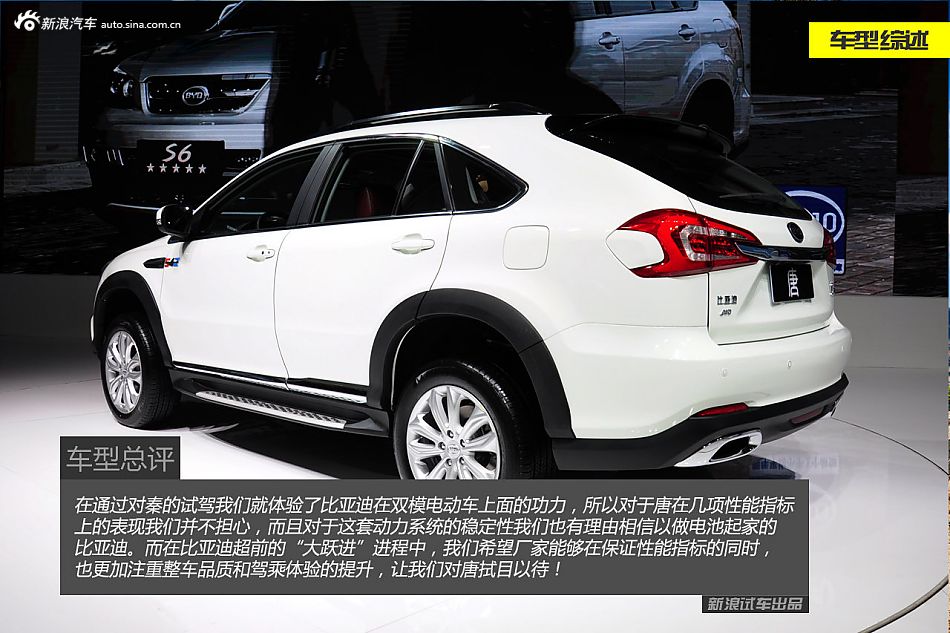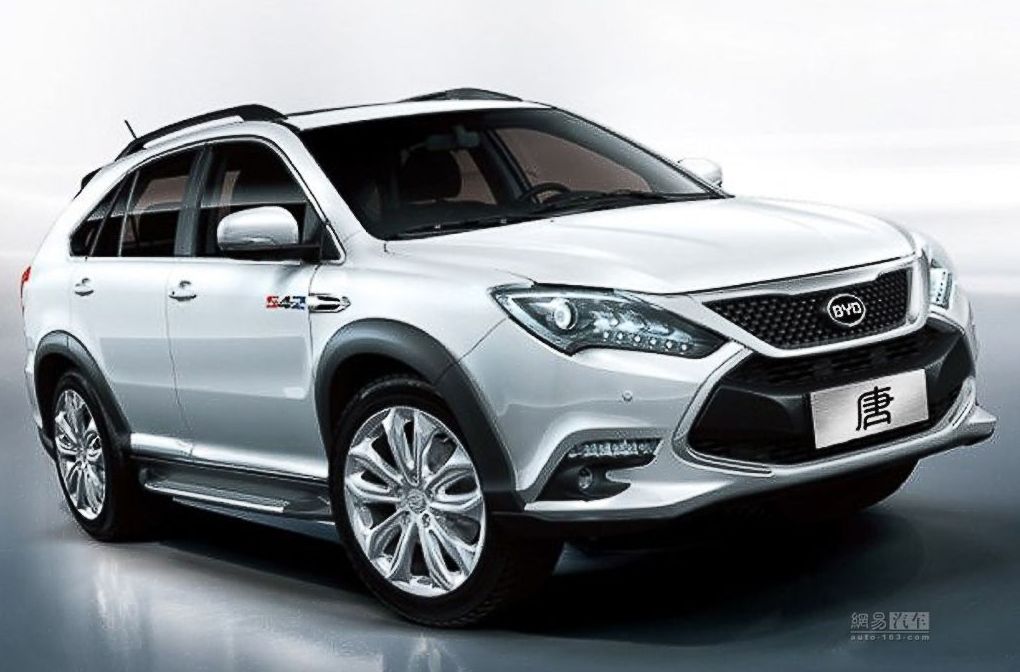
BYD TANG super SUV 4.9s to 100km/h
BYD’s New Code for its super hybrid cars:
542
5: all less than 5 seconds from 0 to 100km/h
4: 4 wheels driven
2: 100km/2 liters
542 数字标识,其含义为:“5代表所有车型0-100km/h加速在5秒内、4代表全面四驱、2代表百公里油耗在2L内”,这是比亚迪双模混动车型未来的发展方向,唐也成为了这个542战略的第一款车型。
BYD seems bent on using green technologies to inject performance into its line up. The Chinese automaker is already set to offer its Qin Hybrid (pictured) – pronounced Chin, it’s a 50-km (31-mile) plug-in version of its Su Rui model, said to be capable of sprinting to 100 km/h (62 miles per hour) in a brisk 5.9 seconds – to the public later this Fall. Now, however, it has revealed several future vehicle programs that vastly improve on the zippiness metric, while keeping fuel consumption to a minimum.
One, the Tang hybrid, will mate a direct injection 2.0-liter turbo engine to an electric motor to return a legitimately quick 4.9 second 0-to-100 km/h experience. Before it finds a place in this sedan, however, Chinese consumers are likely to see the same drivetrain powering the upcoming S7 SUV. There is, as yet, no word as to what type of fuel economy drivers might expect, or how much all-electric range the vehicles might return.
Similarly bereft of detail comes word of an electric sports car. The E9 is to rely on batteries alone to propel it to 100 km/h in 3.9 seconds. Since BYD uses a less-energy-dense battery chemistry than Tesla, we imagine that, while it could have comparable straight line performance to the California company’s Roadster, it will likely lack the 200+ mile range of that original electric two-seater. Still, if the E9 can bring updated styling to the table, we certainly feel such a halo vehicle might shine a favorable light on the rest of the company’s product line.









